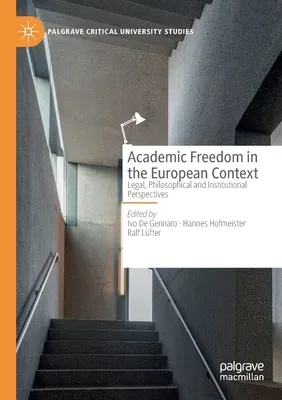Academic Freedom in the European Context: Legal, Philosophical and Institutional Perspectives (2022)Paperback - 2022, 14 February 2023

Qty
1
Turbo
Ships in 2 - 3 days
In Stock
Free Delivery
Cash on Delivery
15 Days
Free Returns
Secure Checkout

Part of Series
Palgrave Critical University Studies
Print Length
356 pages
Language
English
Publisher
Palgrave MacMillan
Date Published
14 Feb 2023
ISBN-10
3030869334
ISBN-13
9783030869335
Description
Product Details
Book Edition:
2022
Book Format:
Paperback
Country of Origin:
NL
Date Published:
14 February 2023
Dimensions:
21.01 x
14.81 x
2.01 cm
ISBN-10:
3030869334
ISBN-13:
9783030869335
Language:
English
Location:
Cham
Pages:
356
Publisher:
Weight:
458.13 gm